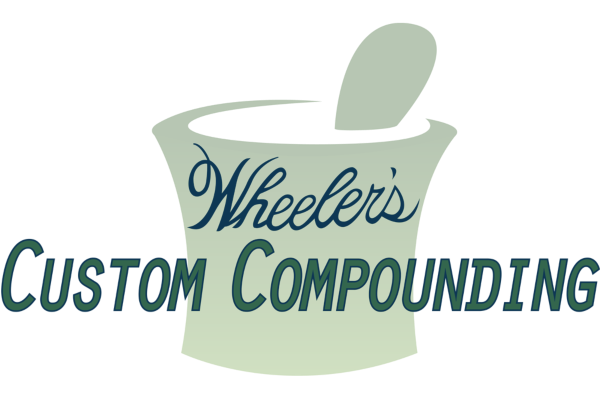But WHY?
Posted on: January 21, 2019, by : Claire But, WWWWHHHHHYYYY??? Ever hear that from a small child? If you have been around young people for any length of time, you have probably heard it many, many, many, many times! Children are so inquisitive and want to know WHY the grass is green, WHY do cats purr, and WHY do they have to eat their broccoli (insert annoying whine). I truly believe that most people never really stop wondering about things in life, but somewhere along the way people begin to accept things as they are. However, once you are a grown adult, simply not asking why can sometimes be harmful. When your engine light comes on in your car, do you simply say “Oh well, that’s just the way it is” and keep driving? No, you don’t, because you know that not knowing the answer to WHY that light is on could essentially be dangerous and ultimately cause injury to you, your passengers, or another motorist. And what exactly happens when the mechanic takes a look? They find out the WHY and then FIX the problem!
But, WWWWHHHHHYYYY??? Ever hear that from a small child? If you have been around young people for any length of time, you have probably heard it many, many, many, many times! Children are so inquisitive and want to know WHY the grass is green, WHY do cats purr, and WHY do they have to eat their broccoli (insert annoying whine). I truly believe that most people never really stop wondering about things in life, but somewhere along the way people begin to accept things as they are. However, once you are a grown adult, simply not asking why can sometimes be harmful. When your engine light comes on in your car, do you simply say “Oh well, that’s just the way it is” and keep driving? No, you don’t, because you know that not knowing the answer to WHY that light is on could essentially be dangerous and ultimately cause injury to you, your passengers, or another motorist. And what exactly happens when the mechanic takes a look? They find out the WHY and then FIX the problem!
What does any of this have to do with healthcare? I’ll tell you. Unfortunately, WHY is rarely asked or answered anymore. Granted, our bodies are much more complex than a car engine and may not be as easily fixed, but it seems that these days the majority of patients and healthcare providers never even ask themselves this important question anymore, much less attempt to answer it. The patient may still ask “why do I feel bad” but the healthcare provider only says “here’s a prescription for an antidepressant” instead of actively trying to search for the WHY…the root cause. For some reason, this so-called answer is acceptable to most people who simply go on their merry way to the pharmacy to fill the prescription…every month…for the rest of their lives. You wouldn’t accept a mechanic who puts duct tape around a hose that’s leaking and says to come back every month so he can put more tape on it, would you? I would argue that you probably wouldn’t, yet fundamentally there’s really no difference in these two scenarios. Both are simply putting a band aid on the problem. The underlying issue doesn’t go away and, in many cases, will actually worsen or cause other things to go wrong. In the traditional healthcare model, we patients have been taught that when you present with any kind of SYMPTOM you are given a DRUG. That’s how the prescribers are taught, too. Since so many healthcare professionals no longer even attempt to ask or answer the WHY, we patients no longer expect to receive the answer, only a prescription. I find this fact not only sad, but simply UNACCEPTABLE.
Enter the functional medicine approach to medicine. Lucky for us, there are healthcare providers out there that ask this important WHY question on a daily basis and work very hard for their patients to get to the root of the problem and find out the answers! These physicians, nurse practitioners, and naturopaths that practice “Functional Medicine” or “Integrative Medicine” seem to be the unicorn pie in the sky enigmas of the medical community. Yet through my own practice of compounding pharmacy, I have met many incredible practitioners who truly care about the why and work with their patients towards a path of wellness. I had never met any of these people when I practiced traditional community pharmacy. WHY, you may ask? (See how I worked that in?) Because, these type of healthcare providers know that there is no “one size fits all” when it comes to healing and are much more willing to look towards alternative and natural methods in order to truly heal their patient from whatever ails them, often working closely with pharmacists to provide solutions. Although they do prescribe what could be described as “normal” drugs produced in bulk by big drug companies when warranted, they also routinely utilize compounded medications and nutritional supplements, as well as acupuncture, massage therapy, lifestyle modifications, etc. In other words, their toolbox contains a lot more than a prescription pad! Sad that a medical treatment tailored for each individual patient and geared toward actual HEALING is considered alternative. This is how it should be all the time, for everyone! We have big pharma, big government, and big health insurance companies to blame for this sad fact. But I’ll go down that rabbit hole later.
Now for some definitions: The Institute for Functional Medicine (IFM) states that functional medicine determines how and why illness occurs and restores health by addressing the root causes of disease for each individual. They say “The Functional Medicine model is an individualized, patient-centered, science-based approach that empowers patients and practitioners to work together to address the underlying causes of disease and promote optimal wellness. It requires a detailed understanding of each patient’s genetic, biochemical, and lifestyle factors and leverages that data to direct personalized treatment plans that lead to improved patient outcomes. By addressing root cause, rather than symptoms, practitioners become oriented to identifying the complexity of disease. They may find one condition has many different causes and, likewise, one cause may result in many different conditions. As a result, Functional Medicine treatment targets the specific manifestations of disease in each individual.” Similarly, integrative medicine is defined as healing-oriented medicine that takes account of the whole person (body, mind, and spirit), including all aspects of lifestyle. It emphasizes the therapeutic relationship and makes use of all appropriate therapies, both conventional and alternative. The principles of integrative medicine include a partnership between patient and practitioner in the healing process, appropriate use of conventional and alternative methods to facilitate the body’s innate healing response, and consideration of all factors that influence health, wellness and disease, just to name a few. Basically, both functional and integrative medical providers strive for patient-centered care instead of disease-focused treatment to achieve health. The definition of HEALTH is a positive vitality, not merely the absence of disease.
It took me years to discover these wonderful healthcare providers and start down my own path of wellness. And through this path, I found my calling as a “functional” or “integrative” pharmacist. I wish I had known about them much earlier in life! Hopefully, I have opened your eyes to a side of medicine that many don’t know exist and I have empowered you to not settle for anything less than the answer to your own WHY.

Keep up the informative blogging Claire! I love it!